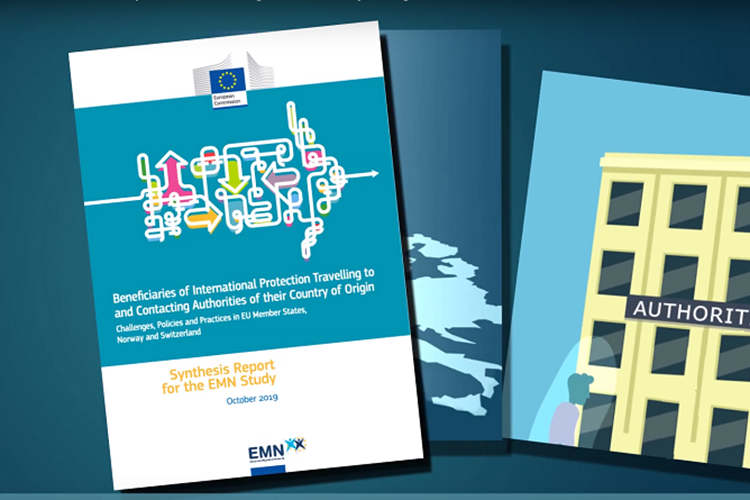Beneficiaries of International Protection Travelling to and Contacting Authorities of their Country of Origin
Challenges, Policies and Practices in EU Member States, Norway and Switzerland
A new study published by the European Migration Network (EMN) offers a comparative overview of the experiences and existing practices in 24 EU Member States Norway and Switzerland regarding the possible consequences on international protection status for individuals who travel to or contact the authorities in their country of origin.A beneficiary of international protection is a person who has been granted refugee status or subsidiary protection status. Beneficiaries of international protection have the right to travel outside the State that granted them protection, under certain conditions. They also have the right to travel to their country of origin. However, obtaining a national passport or travelling back to the country of origin could, in certain circumstances, indicate that the grounds for granting international protection no longer apply. This EMN study explores the policies and practices in 24 EU Member States, Norway and Switzerland regarding beneficiaries of international protection who travel back to their country of origin, or who have contact with authorities from these countries. The study also examines the motivations of the individuals in question, and how such cases would be assessed by the national authorities in the countries that granted them refugee status.
Increased attention given to this issue in some of the countries taking part in the research have contributed to changes to national policies and practices, as well as changes in legislation to provide national authorities with supplementary means of monitoring the situation. The study found that most countries participating in the research did consider travel to the country of origin as an indication that protection may no longer be needed, which could lead them to examine the purpose of the travel or contact with the authorities, and to reassess the international protection status. However, the act of travel alone would not automatically lead to cessation.
Little public information is available at EU or national level on the number of protection statuses withdrawn because of travel to the country of origin. The scale of beneficiaries travelling to their country of origin remains difficult to estimate, but where data is available the numbers overall seem low. According to the study, the most common reason to travel stated by BIPs related to family-related issues, followed by marriage in the country of origin and business activities. Generally, contact with authorities of the country of origin in the State of protection was not contentious, except in cases where the contact led to the allocation or renewal of a passport.
All countries participating in the study reported informing beneficiaries of international protection of the possible consequences of either travelling to or contacting authorities in their country of origin. The study also found that these countries faced challenges in assessing cases where such beneficiaries did travel to their country of origin and its impact on the international protection status, due to the complexity in obtaining evidence and to verifying the reasons.
In all States, the withdrawal of protection status can have consequences for the right of residence of a (former) beneficiary of international protection, depending in most cases on the individual circumstances of the person concerned, and may also affect the protection status and right to residence of family members and dependants.
To download the study please click here.
To download the Inform on the study please click here.
To download the Flash (one page) of the study please click here.
